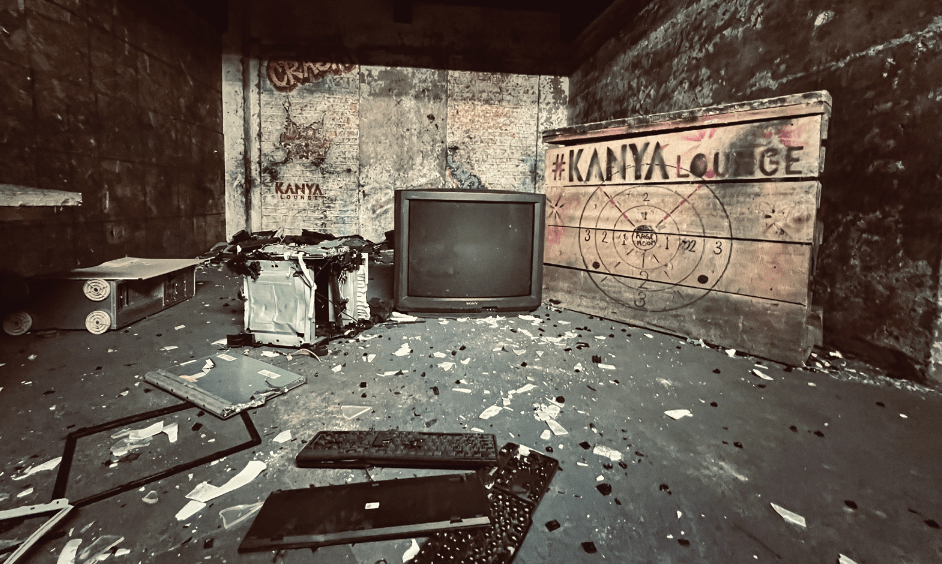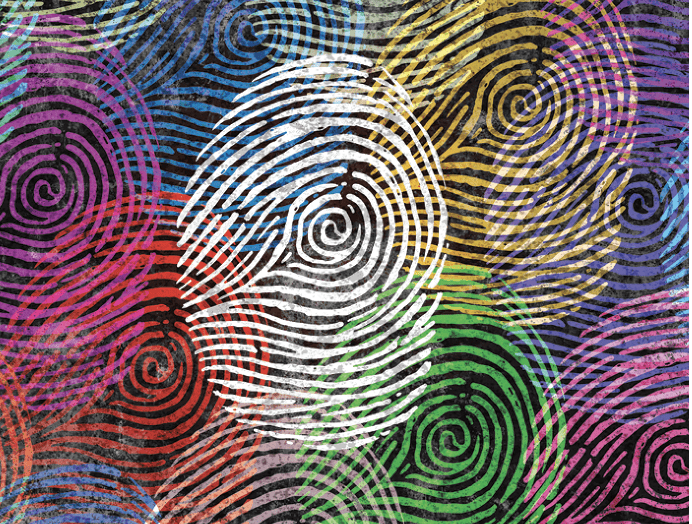A Good Girl on the Darknet
A Luckbox columnist slips into darkness and sees the light
Imagine you’re at your desk when you get a text message on your phone. Oh, is it the cutie from the tiki bar? Nope. It’s Chase bank, and they want to know if you intended to purchase all-season tires and a latex female anatomy simulator. You hurriedly reply, “NO.” Then, the phone rings and your bank says that for your safety, your credit card has been cancelled and a new card will be sent to you shortly.
You grab your purse, man bag or fanny pack and open your wallet. Your bespoke metal credit card (points and miles, gang!) is still safely ensconced in your wallet. You didn’t get that drunk at the tiki bar last night. How did criminals get your info? Was it the sketchy WiFi at the coffee house? The derelict gas station with the cheap prices? Your no-good ex? Chances are it’s none of the above, and you’ve been hit by a smooth criminal on the darknet.
Each month, this reporter eagerly awaits her assignment from the Luckbox editors. But when the mission, should I choose to accept it, was to “surf the darknet,” nervousness set in. Like you, dear Luckbox reader, I thought the darknet was tantamount to the bleachers behind my high school: full of drugs, illicit sex and maybe a live animal or two for sale.
Robert Gehl of inverse.com writes, “In brief, dark websites are just like any other website. They can be viewed by a standard web browser like Firefox or Chrome. The difference is that they can only be accessed through special network-routing software, which is designed to provide anonymity for both visitors and publishers of these sites.” So in short, the darknet is any internet content that you need special software or authorization to access.
Way back in the early 2000s, Roger Dingledine, an unfortunately named graduate of MIT, worked with about six others to launch the Tor project (“The Onion Router”), as a way to create a space on the internet that was as private as possible. Harmon Leon of the Observer writes: “Almost every step along the internet is an opportunity for your data to be sold to a third party. Target ads trumpet the fact that our web searches are being tracked.” That’s why you don’t click on those ads for latex female anatomy simulators.
A Luckbox writer, who wishes to remain anonymous because of their dark skills, helped this elderly millennial traverse the darknet. We downloaded Tor by searching for it on Google. Once installed, the first thing you notice when using Tor is how slow it is. Like, dial-up at Nana and Pop-pop’s slow. Gizmodo’s Bryan Menegus writes, “The dark web mostly resembles the internet of 20 years ago. A lot of (sites) are just annoying GIFs and stupid sounds. Amateurish graphics scrawled against a digital landscape that’s purpose-built to be undiscoverable by the overwhelming majority of people.” So the dark web is just reddit?
After we installed Tor, I asked if you could just type “crimes” into the browser to find the good stuff, but it’s the darknet, so nothing’s indexed. We then searched for “darknet market links” on the “clear,” or regular, web to find the links to .onion sites. You have to know exactly what you’re looking for, and even then, most of the links were broken or Bad Gateway 502 errors. We plugged in a working link to one market site, and that’s where we found an online guide to internet crime.
We paid $5 in bitcoin (BTC) to get a link on the clear web to a file-sharing service and just like that, 56GB of crime advice was at our fingers. My coworker printed out a small portion of the file and I pored over “Carding Guide All my Knowledge” a veritable master class on which credit cards are best for stealing, how to take over someone’s account and how to know when your stolen card has been “burnt” (closed/cancelled).
But my newly purloined crime guide wasn’t as exciting as I thought it would be. Turns out credit card fraud is a lot of time on the phone with customer service, looking up background records and trying to figure out genealogy. What is your mother’s maiden name? Press 1 if you’d like to commit a crime. And nothing is guaranteed. Great! You just scored $5K worth of merch from an online retailer. Now where do you ship it, and how do you pick it up?
If you can persevere, crime does pay. The cost of cybercrime is rising. According to the 2019 Identity Fraud Study from Javelin Strategy and Research, 14.4 million people were the victims of identity fraud in 2018, and of those 14.4 million, 3.3 million people were responsible for some of the cost of the fraud. Out-of-pocket costs doubled from 2016 to 2018, with consumers on the hook for $1.7 billion dollars.
While crime guides and hardware like skimmers are a huge part of the darknet’s marketing cache, what really puts butts in the seats is drugs. The infamous but now defunct Silk Road market site raked in $80 million in two years. But for some perspective, the state of Illinois legalized recreational marijuana on Jan. 1, 2020 and did $40 million in sales in just the month of January.
But for the sake of journalism we perused the online drug sites. Darknet drug sites are eBay’s less-sexy cousin. Sellers list their wares and employ a review system where buyers can leave comments. We found a listing on one site for the designer drug ecstacy with a helpful rating system of “Very Satisfy,” “It’s Okay” and “Total Garbage.” Reviewers then wrote about product quality, shipping problems and how high they got. One reviewer simply wrote, “nice and smooth.” But the paranoia of government takeover pervades the darknet, which is what the government wants—even though our own government is complicit.
“The Postal Service suddenly became perhaps the largest drug-transportation network in the world, delivering fentanyl from China straight to American homes,” according to The New York Times. “The United States Postal Service’s international parcel volume increased to 20.6 billion units in 2015 from 1.2 billion in 2007.” The odds of detecting a few pills or some powder in that volume are insurmountable, but that’s not to say that feds won’t dress up as postal workers and arrest you when you pick up your packages.
Thoroughly scared and disgusted? It’s not all bad. “Focusing all this fear and moral judgment on the dark web risks both needlessly scaring people about online safety and erroneously reassuring them about online safety,” writes Gehl. He uses Experian as an example. The credit monitoring company runs ads scaring people about the darknet and then offers a “dark web monitoring” service. But to get it, you have to give up the very information you’re looking to protect.
There is light on the darknet. “There are more than 865 encryption tools in use worldwide, all addressing different aspects of a common problem,” writes Phillip Winter in an article for The Conversation. “People want to protect information: hard drives from oppressive governments, physical location from stalkers, browsing history from overly curious corporations or phone conversations from nosy neighbors.”
The deep web, and encrypted browsers like Tor, are just one way for people to achieve these goals. Even mainstream sites like Facebook and The New York Times have .onion addresses. Not to be shady, but to be available to citizens of places like China that don’t have fair and free access to them.
The web is evolving and so is our understanding of privacy. Dr. Tim Summers has some wonderful information in this issue about how you can protect your information online. Our foray into the dark web was enlightening, but not as nefarious as the media makes it out to be. Consumers should take all precautions to safeguard their data, whether it be from hackers or intrusive corporations, but just make sure the costs don’t outweigh the benefits, and definitely don’t try to buy a tiger on the darknet. Just trust us.
Vonetta Logan, a writer and comedian, appears daily on the tastytrade network and hosts the Connect the Dots podcast. @vonettalogan




















